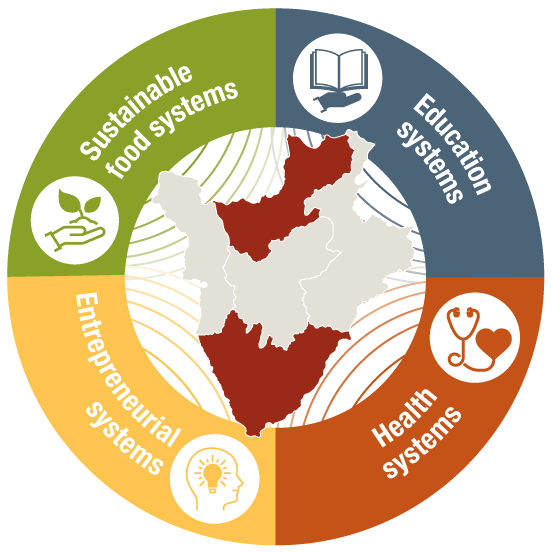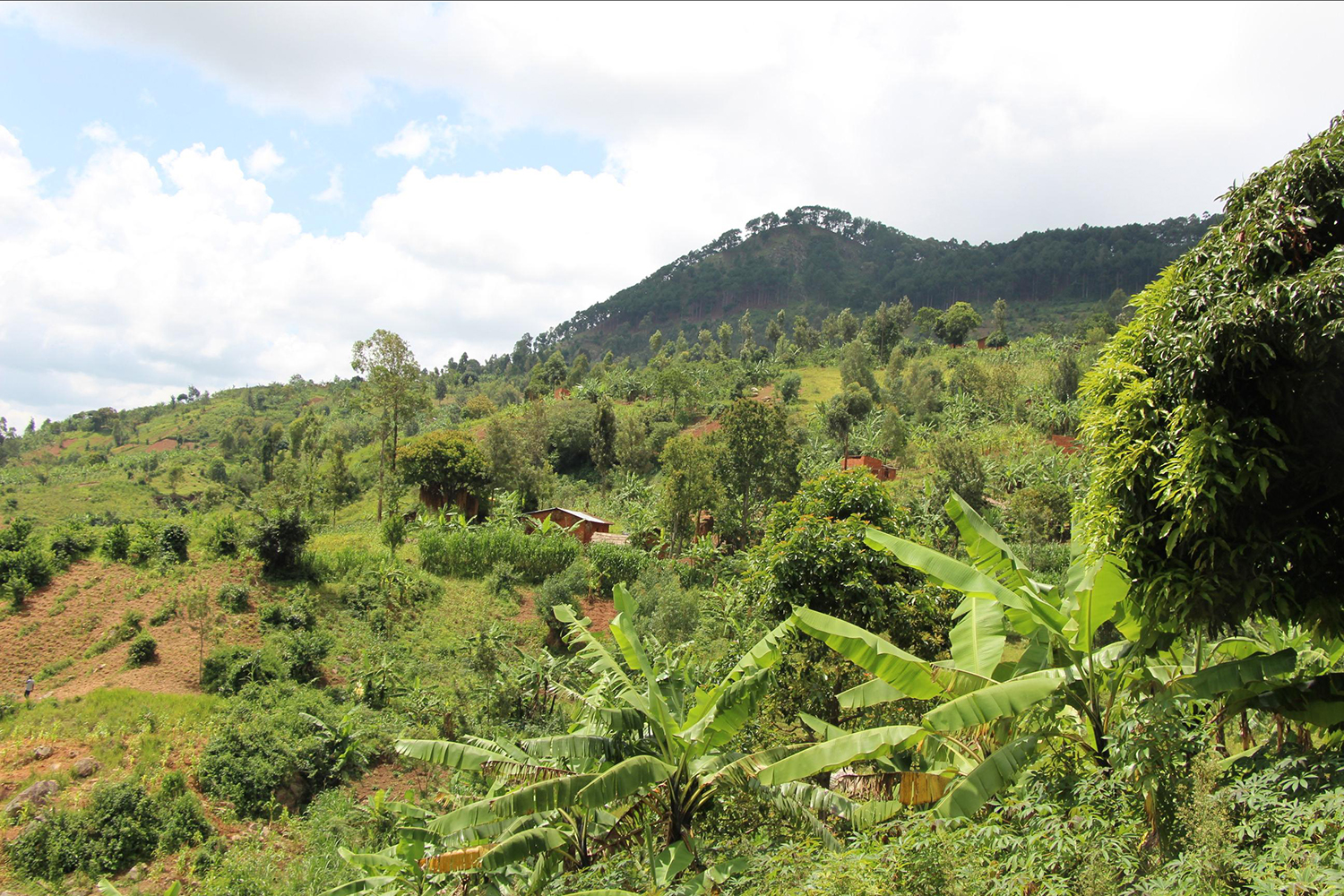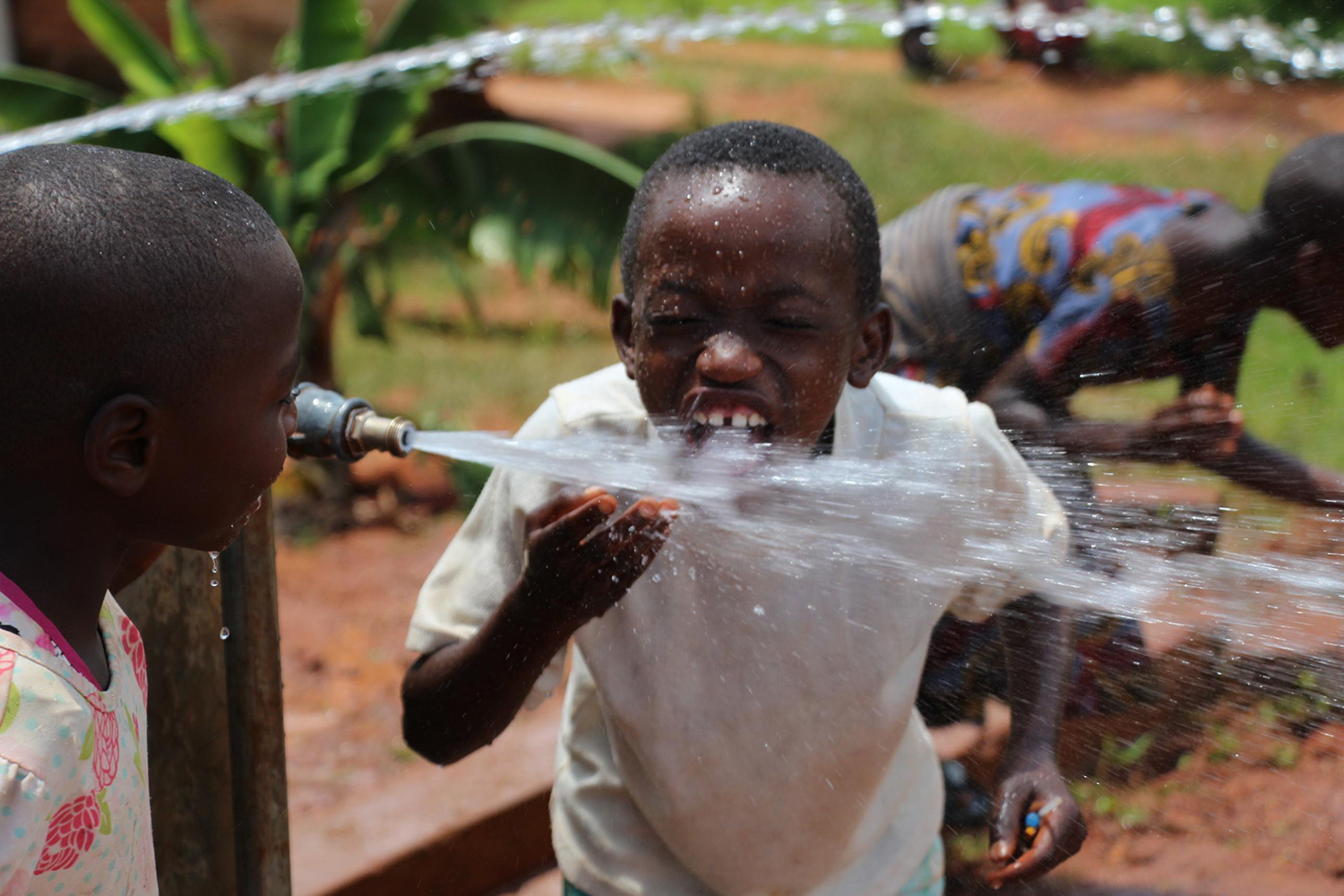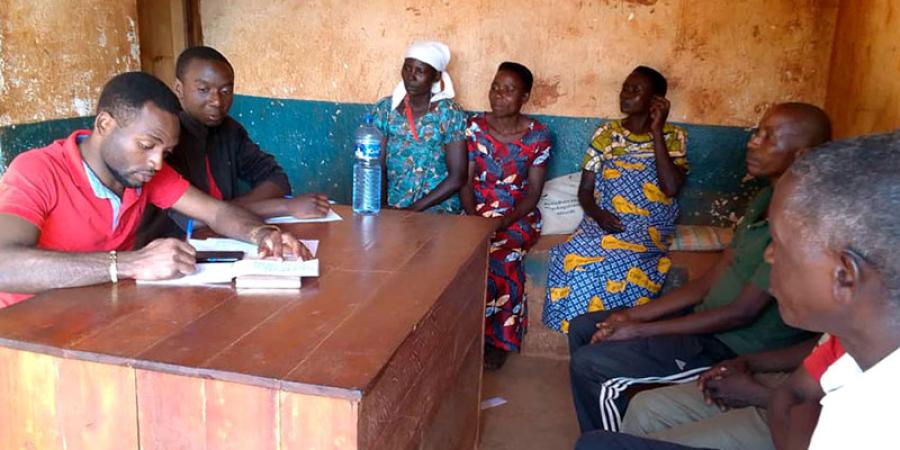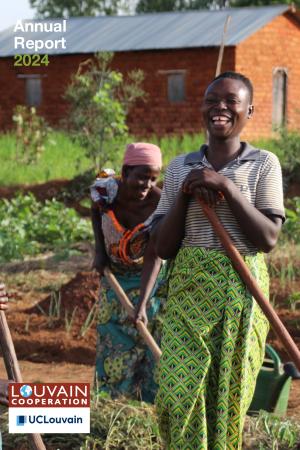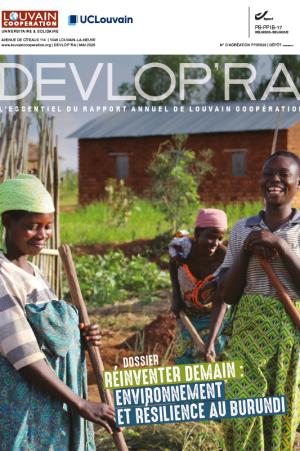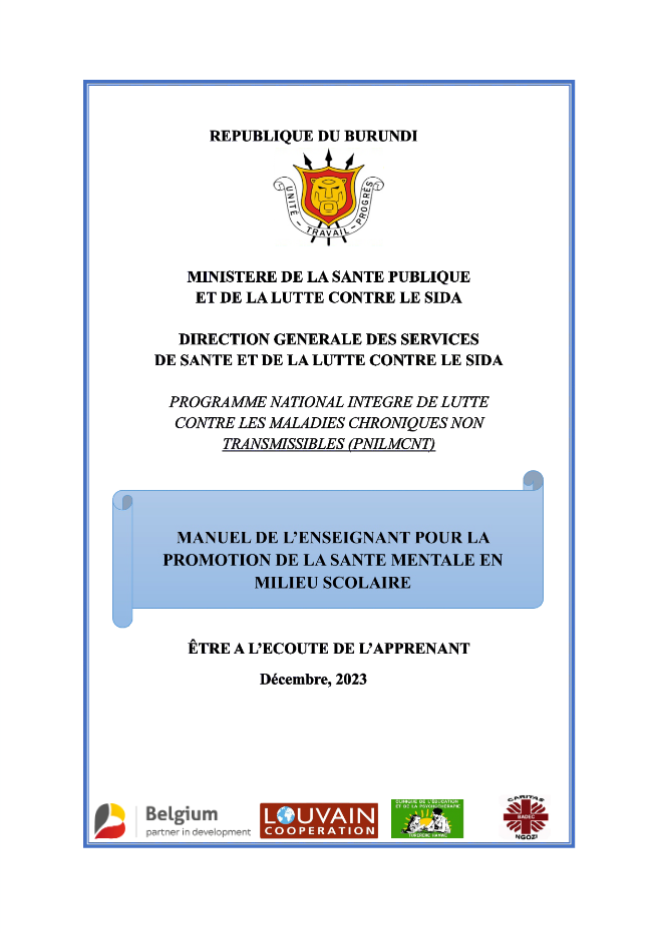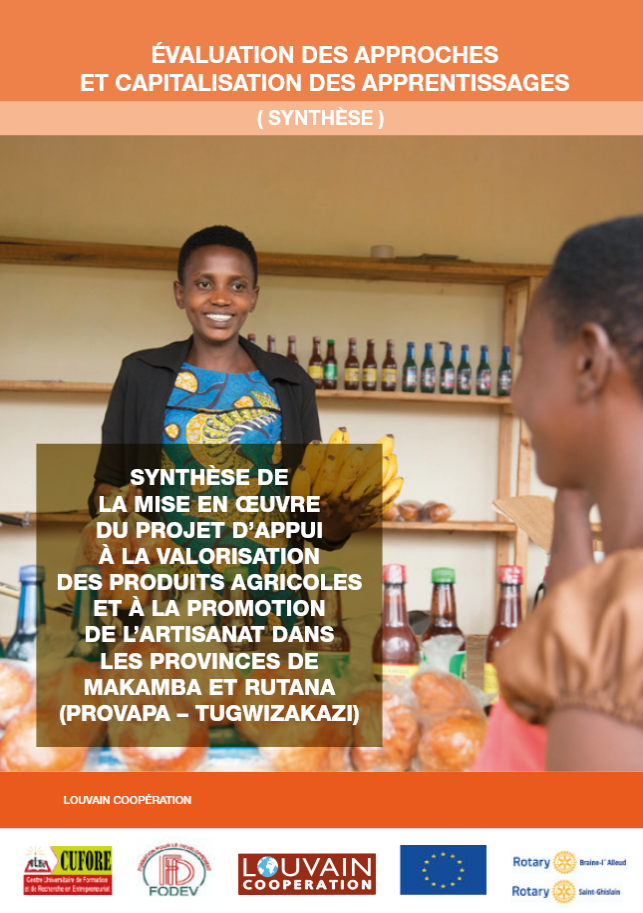
Burundi
Louvain Coopération in Burundi
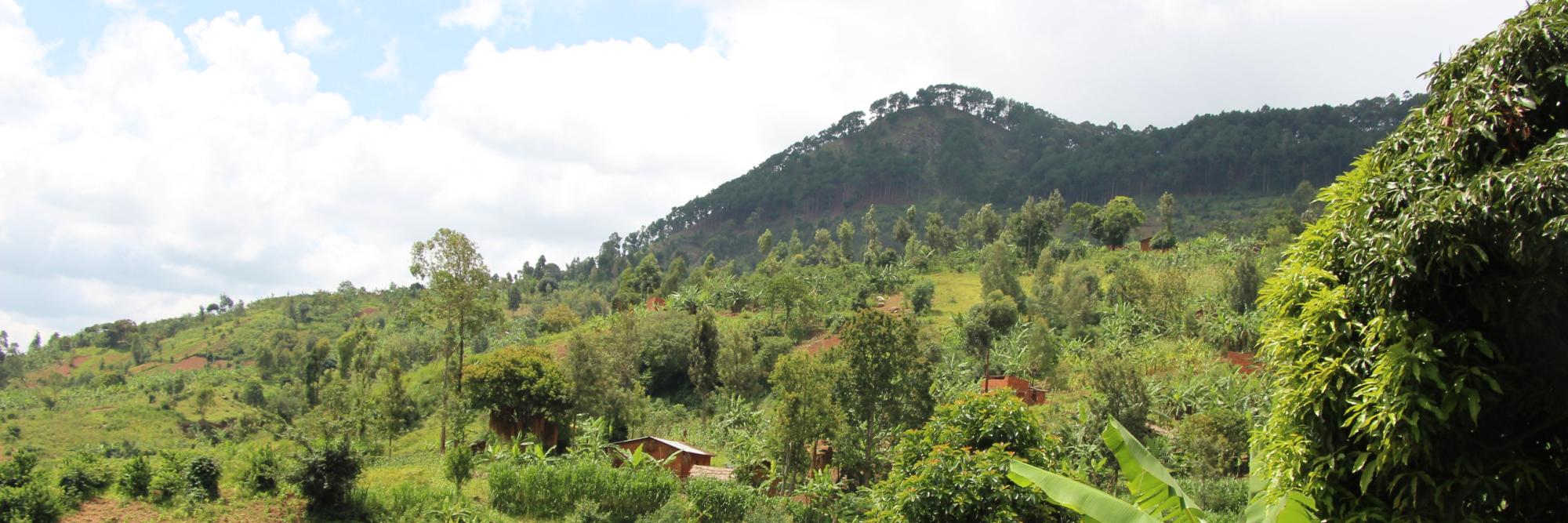
The context of Burundi
A small landlocked country in East Africa, Burundi boasts exceptionally rich natural resources and a remarkable culture. From the lakes that dot its landscape, including the most legendary, Lake Tanganyika, to its hills, wild savannah and primary forests, Burundi is home to many resources.
But Burundi remains one of the poorest countries in the world: two-thirds of its population lives below the poverty line. Violent conflicts, particularly the civil war of 1993-2005, have left deep scars, and the very high population density, among the highest in Africa, puts pressure on agricultural land and natural resources.
Household food security is alarming:
- Nearly 16% of the population, or 2 million people, suffer from hunger.
- 32.1% of children aged between 2 and 5 are underweight, mainly due to hunger and malnutrition.
In terms of employment, the country lives mainly from agriculture:
It is practised by over 90% of the population, on nearly one million family farms averaging around 0.50 hectares per household.
Health:
- Only 10% of the population is covered by formal social protection.
- 40% of Burundians suffer from psychological disorders.
- 334 maternal deaths per 100,000 births.
Natural resources:
The Burundian environment is undergoing severe degradation, including significant erosion of hills, rapid deforestation, reduced biodiversity and deterioration of water quality.
Mental health promotion
- Project name: Projet IZERRE II
- Project duration: 2022-2026
Our goal:
Providing quality healthcare, with a particular focus on access to mental healthcare.
Our actions:
- Integration of mental health into primary care through training for healthcare workers (psychological and medical care).
- Training of mental health support workers within communities to identify cases and refer them to healthcare facilities.
- Awareness campaigns to destigmatise mental health issues.
- Socio-economic reintegration of people suffering from mental health issues through income-generating activities and the creation of community support groups.
- Specific actions for children, particularly in schools (prevention, listening, support) and for women.
- National advocacy to include mental health in public policy.
Our impact:
This project aims to strengthen the integration of mental health into primary healthcare and community life. It reduces stigma, promotes the reintegration of people suffering from mental illness and strengthens local solidarity and resilience dynamics.
Partners and donors
Partners:
- UCODE-AMR : agriculture, ressources naturelles et santé
- CUFORE : entrepreneuriat
- ADISCO, AGDB, AVEDEC, Join For Water : ressources naturelles
- Cibe, VSF-B, CAPAD, Floresta Burundi et Inades-Formation Burundi : entrepreneuriat et agriculture
- BADEC-Caritas Ngozi : santé
- ISABU,
- Université du Burundi,
- Université Lumière de Bujumbura,
- la Clinique de l'Education et la Psychotheurapie (CEP)
Donors:
- Union européenne
- Direction générale Coopération au développement et Aide humanitaire (DGD)
- FRB
- OVO
- Crédit Sud
- MLOZ
- Rotary International
- SENSE
Promoting community health mutuals for access to healthcare
- Project name: AMAGARA ARUTA AMAJANA II
- Project duration: 2022-2026
Our goal:
Influencing health policies, enabling the entire population to access quality healthcare and preventing certain diseases.
Our actions:
- Support for the structuring and governance of seven mutual societies in the north of the country.
- Support for regional and national federations in developing the mutualist movement.
- Support for the healthcare system to guarantee quality care for mutual society members.
- Prevention campaigns on non-communicable diseases, sexual and reproductive health, nutrition, etc.
- Mass screening for female cancers (breast, cervical).
- Raising awareness of mutual insurance membership, particularly among women and social economy initiatives.
Our impact:
This project strengthens equitable access to healthcare through the development of the mutualist movement, while promoting prevention and citizen participation. It thus contributes to more inclusive, sustainable healthcare coverage that is rooted in local realities.
Support for the Promotion of Agricultural and Handicraft Products
- Project name: PROVAPA-TERIMBERE
- Project duration: 2022 - 2027
Our objective:
To promote agricultural and artisanal products in the provinces of Makamba and Rutana by supporting 70 agricultural organisations (1,400 households) in the maize, cassava and banana sectors.
Our actions:
- Actions across the entire agricultural value chain and support for the various actors in the chain.
- Technical training to strengthen skills in agricultural and non-agricultural professions.
- Entrepreneurial training aimed at developing business plans, management tools, access to credit and personalised support.
- Training for producers in sustainable agricultural techniques adapted to the local context.
- Support for local production of seeds and agricultural equipment.
- Improvement of production through the introduction of quality seeds, crop diversification, or the integration of livestock farming into family farms.
- Processing of agricultural products through the establishment of small processing units to create value and reduce waste.
- Functional literacy focused on rural economic activities, particularly targeting women and marginalised groups to strengthen their autonomy and community integration.
Our impact:
This project contributes to developing more resilient agriculture that respects natural resources, while ensuring greater food security and developing the social and economic potential of the local population in an inclusive manner.
Discover our actions for inclusive entrepreneurial systems
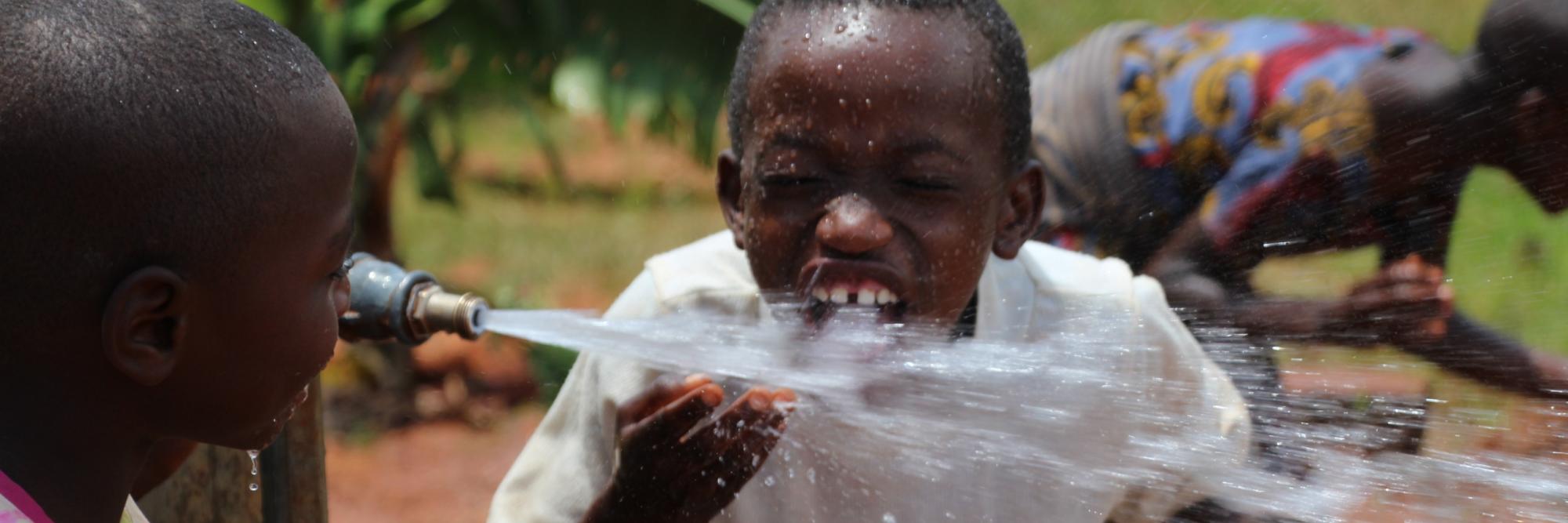
Support for civil society active in the fields of the environment and biodiversity
- Project name: PASCALE B IBIDUKIKIJE
- Project duration: 2022 - 2026
Our Objective:
To influence public policy on the environment by strengthening civil society organisations (CSOs) for the sustainable management of natural resources and biodiversity through the implementation of local, participatory and environmentally friendly projects.
Our Actions:
- Strengthening and structuring 80 organisations active in the fields of the environment and biodiversity.
- Training on natural resource management, agroforestry, ecological land use planning, sanitation, biodiversity, etc.
- Creation of networks and spaces for multi-stakeholder dialogue.
- Support and financing for 16 micro-projects led by CSOs (reforestation, restoration of flora with native species, protection of sensitive areas, improved access to drinking water, etc.).
- Advocacy with local and provincial authorities.
- Support for community management of environmental infrastructure.
- Awareness campaigns to encourage environmentally friendly practices.
Our impact:
This project enables local stakeholders to be better trained, more committed and better organised to protect their environment.
Support for entrepreneurship in the agricultural sector
- Project name: SESA-UMWUMBATI WACU
- Project duration: 2023-2027
Our objective:
To support 9,265 micro, small and medium-sized enterprises working in the production, processing and marketing of agricultural products in the cassava sector.
Our actions:
- Production and provision of quality seeds through support for seed producers.
- Training in agroecological practices for producers, seed producers and 53 producer organisations.
- Integration of livestock farming into family farms to diversify production and facilitate access to natural fertilisers.
- Development of processing units to diversify processed products while making use of agricultural waste.
- Facilitating access to finance through banks and microfinance institutions for rural businesses.
- Functional literacy focused on rural economic activities, particularly for women and marginalised groups to strengthen their autonomy.
- Promoting human rights and decent work through awareness-raising and popular education initiatives.
- Educational activities on the environment and the green economy to encourage responsible and sustainable behaviour.
Our impact:
This project helps to sustainably strengthen the economic capacities of thousands of rural actors involved in the cassava sector, while promoting social inclusion and autonomy for the most vulnerable. Thanks to an integrated approach, it contributes to more resilient, equitable and environmentally friendly agriculture.
Contact : info-bur@louvaincooperation.org
Find out more about our work in Burundi
More news +
More videos +
More documents +
FAQ
Burundi has a vibrant cultural heritage deeply rooted in its traditions and history. Artistic practices, music, crafts and linguistic diversity play a central role in transmitting knowledge and strengthening social ties.
Linguistic diversity at the heart of national identity
Kirundi is the mother tongue of the vast majority of the population and is an essential vehicle of Burundian culture. French and English, the official languages, are mainly used in administration, education and international relations.
A recognised musical and choreographic heritage
Music and dance play an important role in the country's social and cultural life. Among the most emblematic expressions is the Burundi drum dance, listed as intangible cultural heritage by UNESCO, a tradition that combines percussion, singing and choreography, often performed during ceremonies and community events.
Traditional crafts rooted in the local economy
Burundian crafts are based on skills passed down from generation to generation. Woodworking, sculpture and basketry are particularly well developed and play both a cultural and economic role, providing income for many families. These products, often inspired by traditional designs, are intended for local use but are also exported to regional and international markets.
Burundi has diverse natural capital, which plays a key role in the national economy and the livelihoods of its people. However, the development of these natural resources is marked by contrasting dynamics between traditional exploitation and untapped potential.
Agriculture supported by fertile land
Thanks to rich volcanic soil and a favourable climate, agriculture is a key pillar of the Burundian economy. Agricultural land allows for diverse production, including coffee, tea, bananas and cassava. However, population pressure and soil erosion pose challenges in terms of sustainable management of arable land.
A structuring water network
Lake Tanganyika, one of the largest and deepest lakes in the world, is a reservoir of biodiversity and a major economic hub for fishing and transport. In addition, the country's numerous rivers offer significant hydroelectric potential, which could promote access to renewable energy in the coming years.
A subsoil rich in mineral resources
Burundi has significant deposits of nickel, gold and rare earth elements, which are mainly mined using artisanal methods. Although these resources are attracting growing interest, their extraction remains largely unregulated, limiting their contribution to the national economy and raising environmental and social issues related to their exploitation.
Burundi is implementing several strategies aimed at strengthening its economic and social resilience, with a particular focus on improving infrastructure, modernising productive sectors and promoting the socio-professional integration of young people and vulnerable populations.
Improving infrastructure for inclusive development
Strengthening infrastructure is key to opening up rural areas, facilitating trade and improving access to essential services. The focus is on extending the road network, developing electrification, particularly through renewable energy, and access to drinking water and sanitation infrastructure, which are essential for improving the quality of life of the population.
Modernisation of agriculture and economic diversification
Agriculture, which accounts for a significant share of GDP and employment, is at the heart of economic transformation efforts.
The modernisation of agricultural techniques and the promotion of sustainable agroecological practices aim to strengthen food security and productivity while preserving natural resources.
At the same time, economic diversification requires support for small businesses, particularly in crafts, trade and services.
Social and professional integration and skills development
Education and training play a key role in social and professional integration. Initiatives are being implemented to develop technical and vocational training tailored to the needs of growth sectors, including sustainable agriculture, renewable energy and local entrepreneurship. Improving access to education, particularly in rural areas, remains a priority for promoting employability and social mobility.
Social protection and strengthening social cohesion
Development cannot be sustainable without effective social protection to reduce economic vulnerabilities.
Initiatives aim to improve access to healthcare, strengthen food security and support populations most exposed to climate and economic hazards.
The implementation of microfinance and social entrepreneurship programmes is also a lever for strengthening the economic autonomy of households and promoting more inclusive development.
Promoting cultural heritage and the local economy
Cultural traditions and craftsmanship play a fundamental role in the country's national identity and economic vitality. Promoting local crafts and responsible tourism not only helps preserve heritage, but also creates jobs and income for communities.
Burundi's economic and social development is structured by several interdependent dynamics. The country faces major structural challenges, but it also has strategic levers that promote its resilience and regional integration.
Evolving infrastructure
Access to infrastructure remains a key challenge for economic development. The road and electricity networks are being improved, but many rural areas remain difficult to access, limiting trade and industrialisation. Strengthening transport and energy infrastructure is a priority for facilitating the development of economic activities.
Growing pressure on land
With one of the highest population densities in Africa, access to land is a major challenge. The fragmentation of agricultural land, due to the hereditary transmission of plots, limits productivity and the investment capacity of farmers. Land management and optimising land use are essential for improving food security and farm profitability.
Agriculture exposed to climate hazards
Agriculture in Burundi, which is the main source of income for the majority of the population, is particularly vulnerable to weather variations.
Periods of drought and irregular rainfall can affect crop yields and jeopardise food security. Strengthening irrigation techniques and adopting agroecological practices can help to better manage these risks.
Opportunities to be seized
Despite these challenges, several sectors offer opportunities for development.
Sustainable agriculture is encouraged through initiatives promoting agroecology and improved farming practices.
Burundi also benefits from its membership of the East African Community (EAC), which facilitates trade and regional economic integration.
Finally, the development of renewable energies, particularly hydroelectric and solar energy, is an important lever for increasing access to electricity and supporting economic growth.
Access to healthcare in Burundi is based on a network of public and private healthcare facilities, with a contrasting distribution between urban and rural areas.
The infrastructure includes community health centres, which provide primary care and prevention, district hospitals, which offer more specialised services, and national and university hospitals, mainly located in large cities.
Although these structures meet the needs of the population, their capacity is sometimes limited by the availability of medical resources and equipment.
Key health challenges
Communicable diseases are a major cause of morbidity and mortality.
Malaria, acute respiratory infections and waterborne diseases remain persistent challenges, particularly due to climate variations and unequal access to safe drinking water.
Maternal and child health is also a key focus of public health policies, with efforts focused on prenatal care, vaccination and the fight against child malnutrition.
National and international initiatives are being implemented to improve health coverage. These include the expansion of child vaccination programmes, the development of mobile healthcare units to reach remote populations, and the improvement of sanitation infrastructure to reduce the prevalence of water-related diseases. These measures are part of a broader effort to strengthen the Burundian healthcare system, with a particular focus on improving access to healthcare in rural areas.
Burundi has several urban centres that play a key role in its administration and economy.
- Bujumbura, the former capital and largest city in the country, remains an economic and commercial hub, thanks in particular to its port on Lake Tanganyika, which facilitates regional trade.
- Gitega, designated the political capital in 2019, is gradually becoming the centre of public administration and national institutions.
- Ngozi and Muyinga, located in the north, are dynamic agricultural and commercial centres, contributing to trade with Rwanda and Tanzania.
- Rumonge, on the shores of Lake Tanganyika, is experiencing rapid growth thanks to fishing and the development of cross-border trade.
With approximately 13 million inhabitants (2024 estimate), Burundi is one of the most densely populated countries in Africa, with an average of approximately 450 inhabitants per km². This high population density directly affects access to agricultural land and natural resources, posing challenges for land use planning and sustainable resource management.
The Burundian population is predominantly rural, with nearly 87% of inhabitants living in agricultural areas. The country's economy and social organisation are deeply rooted in agricultural activities, which provide a livelihood for the majority of households.
Burundi is also experiencing sustained population growth, with a fertility rate of more than five children per woman. This demographic dynamic is putting increased pressure on infrastructure, particularly in the areas of education, health and employment.
Life expectancy in Burundi is estimated at around 62 years, but varies depending on access to medical care and basic infrastructure. Improving health services and living conditions remains a key challenge in supporting this population growth.
Entrepreneurship plays an increasingly important role in diversifying the economy, particularly among young people and women.
Promising sectors for entrepreneurs:
- Agro-processing: Promotion of local agricultural products for national and regional markets.
- Renewable energy: Initiatives around solar energy and energy solutions adapted to rural areas.
- Digital technologies and services: Development of fintech and e-commerce solutions despite limited infrastructure.
Challenges and prospects:
- Limited access to finance: Young entrepreneurs face difficulties in obtaining credit.
- Skills development: Need for appropriate training to support business creation.
- Institutional support: Microfinance initiatives and support programmes are expanding rapidly.
Burundi's economy is mainly based on agriculture, which employs a large part of the population.
- Agriculture (40% of GDP, 80% of jobs): The main economic driver, with food crops and products for export (coffee, tea).
- Crafts and agri-food processing: Important for local and regional markets.
- Informal trade and services: A significant part of economic exchange is based on informal channels.
Education in Burundi is based on a system structured into several cycles, with enrolment rates varying according to educational level and region. The country has universal primary education.
Universal access to primary education
Primary education covers the majority of school-age children, with an enrolment rate of nearly 95%. However, continuing education beyond this cycle varies according to available resources and local circumstances.
Differentiated dynamics in secondary and higher education
Access to secondary and higher education varies depending on several factors:
- Geographical distribution of institutions : Universities and training centres are mainly located in large cities, which can influence educational choices.
- Infrastructure and equipment: The availability of teaching materials and specialised teachers varies from region to region.
Technical and vocational training on the rise
In addition to general education, technical and vocational training initiatives are being developed to meet the needs of the labour market. These programmes are particularly prevalent in the agriculture, crafts and entrepreneurship sectors, with a focus on adapting skills to local and regional economic opportunities.

